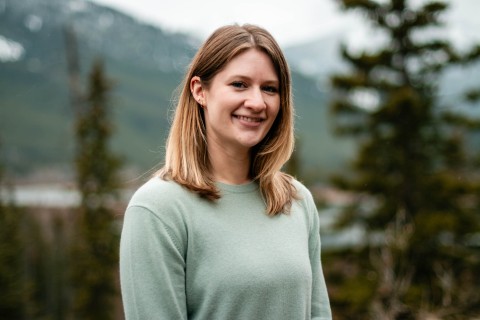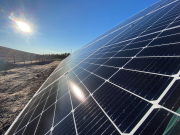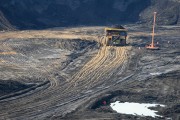July is Alberta’s first coal-free month in well over a century. This is an historic milestone that has been widely recognized and celebrated. Yet we are also acutely aware that the transition away from coal has not been without pain, particularly in those communities where coal provided jobs and livelihoods.
Innovation is continuing to expand the use of zero-emission fuel sources. While this transition is driven by overall economic wellbeing, it is bringing change to legacy industries. It is time to plan for an energy transition that won’t leave anyone behind.
Earlier this year, the Alberta Federation of Labour hosted a dialogue series across several small communities in southern Alberta—from Olds to Medicine Hat. It was intended to kickstart conversations about how the province could evolve in a rapidly changing world.
I attended four stops of this tour, listening to what workers and community members had to say about Alberta’s possible future economy. Having lived in and spent a great deal of time in resource-based and small-town communities, I heard familiar sentiments. The energy and natural resources economy matters a lot to many people in rural Alberta. They pay attention to what is happening in the policy space. But who they are paying attention to is what ultimately shapes perspectives on where to go next.
It appeared that approximately one-third of those who attended the AFL town halls were curious about the energy transition and wanted to know more about what it could mean for them. Another third felt skeptical and, at times, fearful about how an accelerated clean energy transition could disrupt or destabilize their lives and the home communities that they know and love. The remaining third supported the changes they were beginning to see and the potential that clean energy solutions could provide. The commonality between everyone was their passion for their communities and hope for a bright future for Alberta.
Changes are coming
Our research tells us that changes are coming to cornerstone industries that we cannot avoid. The AFL was clear in their message at the town hall meetings: Alberta needs to prepare for a different economic reality. Messages about the “slow energy transition” underestimate the power of industry, innovators, decision-makers and communities to adapt to new realities and technology. The mindset that the energy transition isn’t possible only makes it so.
The AFL shared findings from their 2022 report Skate to Where the Puck is Going, for which they had engaged their union membership in coming up with seven different “missions” to capitalize on growth opportunities. These missions are grounded in former Alberta Conservative Premier Peter Lougheed’s “activist government” interventions that ultimately led to the industrial policy that created the oilsands. Now it’s time to do the same, but for clean energy. AFL highlights the role of petrochemicals and value-added manufacturing, electrification and infrastructure build-out, as well as renewable energy, hydrogen, critical minerals, building retrofits and oil and gas decarbonization, all of which have a role in a net-zero future. Many of these pathways resonated with those who attended town halls as well.
Alberta is home to many institutions and people that are ready to tackle the challenges ahead. Training institutions like the Southern Alberta Institute of Technology and Red Deer Polytechnic will be important for equipping youth and workers for the jobs of the future. Organizations like Calgary Economic Development are undertaking proactive and innovative approaches to position Calgary and southern Alberta to capitalize on new industries like cleantech. And of course, the AFL is creating spaces for workers to lend their perspectives. With this can-do mindset, the future looks bright.








